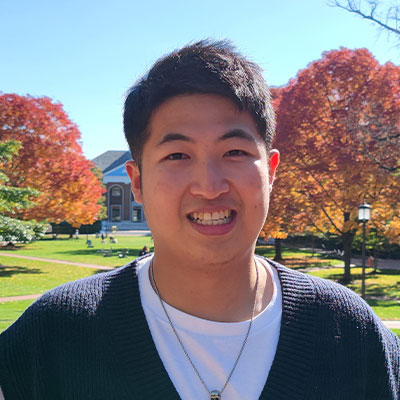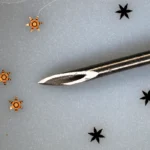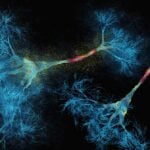Yining Zhu Receives 2024 Young Investigator Award

The annual Young Investigators’ Day ceremony celebrates the unique contributions of junior researchers and the mentors who helped them excel in their fields. Meet this year’s awardees. Select any trainee below to learn more about their extraordinary work — both in and outside the lab. One of those recipients is Yining Zhu, recipient of the The Hans J. Prochaska Research Award. Zhu is a PhD candidate in the Department of Biomedical Engineering and mentored by Hai-Quan Mao, director of the Institute for NanoBioTechnology,
Please describe briefly and in simple terms your research discovery. Why is it important in the context of your field? In what lab did you do the research?
Zhu: Lipid nanoparticles, renowned for their role in delivering messenger RNA for COVID-19 vaccines, have emerged as promising vehicles for cancer immunotherapy. Earlier studies concentrated on enhancing lipid nanoparticles to stimulate robust responses from T helper 1 (Th1) cells, which are pivotal in enabling the immune system to recognize and combat cancer cells. Working in Hai-Quan Mao’s lab, I utilized an innovative screening technique to optimize the lipid nanoparticle composition, tailoring it to enhance and maximize immune response activation. Through this endeavor, I found lipid nanoparticles capable of eliciting responses through dual pathways, effectively presenting tumor antigens to both Th1 and Th2 cells, another subset of helper cells. This research stands out for demonstrating the potential of lipid nanoparticles to enhance both Th1 and Th2 responses, orchestrating concerted attacks on cancer by diverse immune cell populations. Such findings offer a versatile strategy for vaccine development applicable across various diseases, thereby broadening the scope of mRNA lipid nanoparticle-based immunotherapies.
Why did you choose Johns Hopkins for your work?
Zhu: I chose Johns Hopkins because I want to be equipped with the most advanced scientific concepts, engineering principles and clinical insights, all of which are well integrated at Hopkins. I find my career aspiration aligns well with the philosophy of Hopkins education and research. More importantly, the strong connection with Johns Hopkins Medicine and the integration of clinical practices and engineering research are very attractive for me to join here, keep learning and thrive.
What does receiving this award mean to you personally and professionally? Do you have any connection with the particular award you received?
Zhu: Receiving this award is profoundly encouraging, motivating me to continue pursuing my research and career goals in biomedical engineering scientific research. I am inspired to contribute further to translating imaginative research into therapeutic applications, following in the footsteps of Dr. Prochaska.
What contributed to your project’s success?
Zhu: I would like to express my gratitude to my PI, Dr. Hai-Quan Mao, for his unwavering support and invaluable opportunities. His guidance has inspired my passion for nanocancer vaccine research. Additionally, I extend my thanks to my lab colleagues and collaborators for their support throughout this journey.
What thoughts do you have about Young Investigators’ Day itself, as a celebration of the roles students and fellows play in research at Johns Hopkins?
Zhu: Young Investigators’ Day provides an invaluable opportunity for students and fellows to engage and connect within our scientific community. I am truly grateful for this opportunity.
What has been your best/most memorable experience while at Johns Hopkins?
Zhu: While at Johns Hopkins, one of my most memorable experiences was participating in collaborative research projects that brought together students and faculty from various disciplines and different universities. Working alongside experts from different fields was truly rewarding, as we pooled our knowledge and skills to make significant strides in our research.
What are your plans over the next year or so? Graduating, looking for faculty positions, etc.?
Zhu: I will be graduating within two years, and looking for a postdoc position and eventually a faculty position.
Tell me something interesting about yourself that makes you unique. Do you have any special hobbies, interests or life experiences?
Zhu: I adopted a golden retriever (Watson) when I entered the Ph.D. program. I have really enjoyed his company during the journey. Experiencing my personal growth, both in terms of age and scientific research capability, alongside Watson’s own growth has been a uniquely enriching experience.
Learn about all the award recipients.
Latest Posts
-
 Johns Hopkins Postdoc Named in Forbes `30 Under 30′ List
December 8, 2025
Johns Hopkins Postdoc Named in Forbes `30 Under 30′ List
December 8, 2025
-
 Micro Grippers: David Gracias Builds Micromachines That Fold, Stick, Swim, and Sense—All Inside the Human Body.
November 20, 2025
Micro Grippers: David Gracias Builds Micromachines That Fold, Stick, Swim, and Sense—All Inside the Human Body.
November 20, 2025
-
 A bold new approach to autoimmune diseases
November 19, 2025
A bold new approach to autoimmune diseases
November 19, 2025


